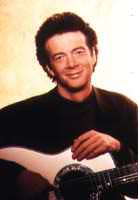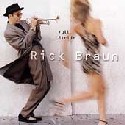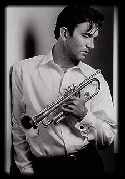





Love: The culmination of successive perfect moments between two of the same mind and spirit.
Perfect Moment: An experience, good or bad, which creates an atmosphere for love to display itself.

This morning I watched a bird build a springtime nest. His mate patiently flew back and forth making her inspections with a belly  full of love. I followed his work with my eyes while he scavenged wind tossed twigs and fashioned a home for the two of them. A perfect moment I thought.
full of love. I followed his work with my eyes while he scavenged wind tossed twigs and fashioned a home for the two of them. A perfect moment I thought.
Ok! So it's been awhile. I've just been waiting for the Perfect Moment to greet you again and it seems that Peter White has provided it. He has solicited the likes of Grover Washington Jr., Rick Braun, Greg Vail, Gerald Albright and Brian Culbertson to help him make this CD the "Perfect Moment" that it is.
With no love to serenade or gather garnishments for, I got bored later in the day and drove down to my local candy store and sampled all the new CD’s they had out on play display. I test tasted an older Brian Tarquin selection, "Last Kiss Goodbye", Fattburger's “Sugar” and finally Peter White's “Perfect Moment”. I purchased all three but found the last to be the best of this bunch because of its smooth, melodic texture and its overall artistic appeal. “Perfect Moment” is a mixture of gumptious grooves and laid back, acoustical magic. This CD is Peter White’s seventh bold release and the 3rd on the Columbia label.
Over the years, Peter White has sat session with quite a few jazz celebrity standouts, among them Rick Braun, Boney James, Basia and Kirk Whalum. With Rick Braun being one of my favorites, I wondered how Peter sounded solo after falling for the song China Bath on the 98 release of Braun's “Full Stride” CD. If it had not been for Circuit City having all these CDs out to be listened too, I might not have given Peter White a second look. I'm glad I did and now Peter's "Perfect Moment" helps sweeten my jazz pot.
Kirk Whalum. With Rick Braun being one of my favorites, I wondered how Peter sounded solo after falling for the song China Bath on the 98 release of Braun's “Full Stride” CD. If it had not been for Circuit City having all these CDs out to be listened too, I might not have given Peter White a second look. I'm glad I did and now Peter's "Perfect Moment" helps sweeten my jazz pot.
The first song on “Perfect Moment" is named San Diego , and I must admit, it surprised me. First of all let me say right here and now that another of my favorite jazz artists is Earl Klugh who caught my young and ignorant jazz ear way back in the late 70s and early 80s. In fact, Klugh was one of the featured players at the last concert I went to in the fall of 98. Earl is very recognizable but, in my opinion, his music of late has gotten a little, how shall I say, redundant. Even the most recent review of his work I've read in Jazziz magazine echoes my sentiment. Although still remaining one of the most enterprising and sought after in today’s contemporary jazz movement, I feel Earl needs to come up with something just a little different than what has been offered in the past for me to consider a new purchase.
That out of the way, Peter White has just the feel I've been looking for out of the recent Earl expressions. This acoustic attribute stems from Peter's extensive use of the helping hand. Where Earl would hire out a 100-piece string orchestra to accompany his group, Peter enlists the backing of as many different and diverse artists he feels would help in bringing out the strut and swagger he's trying to convey in his unspoken word.
Case in point, on San Diego he has Lenny Castro pushing the percussion. On other songs it’s someone different but here, Peter's choice of using  Lenny elicits the West Coast, Brazilian feel you'd expect of such an entitled song. I really don't know how much input Lenny gave to San Diego while being written, but his musical contribution makes it light, bright and full of energy. Peter does do the Earl Klughish finger roll here and there and the strings strut their stuff in the background, but Peter differentiates from Earl on how, at this tempo, Earl’s strings would be a little more out front instead of a soft overtone. San Diego is perfect for days of pulling your car out of the well worn parking lot at the J.O.B., rolling down the windows and heading for the oceanside, coat and tie haphazardly thrown in the back seat for good measure.
Lenny elicits the West Coast, Brazilian feel you'd expect of such an entitled song. I really don't know how much input Lenny gave to San Diego while being written, but his musical contribution makes it light, bright and full of energy. Peter does do the Earl Klughish finger roll here and there and the strings strut their stuff in the background, but Peter differentiates from Earl on how, at this tempo, Earl’s strings would be a little more out front instead of a soft overtone. San Diego is perfect for days of pulling your car out of the well worn parking lot at the J.O.B., rolling down the windows and heading for the oceanside, coat and tie haphazardly thrown in the back seat for good measure.
Track two lays all the Klugh connotations to rest. "Kinda Sweet" is not just a regular, candy-coated jazz entree. Sinking your teeth into this spoonful of sugar helps life's medicine go down. It gets deep in the  soul like the feeling of a lost love's cry. As I stated earlier in this chapter, it's been awhile since I've had someone to help get the glucose going and this cut advances this realization all too close to home. During the bridge, Rick Braun, who appears on the CD courtesy of Blue Moon records, has you thinking he picked the right label to portray. As the cut closes out, he trumpets his magic some more, making it shiver against his lips to remind me of this past wintertime's loneliness. Neat, sweet, complete.
soul like the feeling of a lost love's cry. As I stated earlier in this chapter, it's been awhile since I've had someone to help get the glucose going and this cut advances this realization all too close to home. During the bridge, Rick Braun, who appears on the CD courtesy of Blue Moon records, has you thinking he picked the right label to portray. As the cut closes out, he trumpets his magic some more, making it shiver against his lips to remind me of this past wintertime's loneliness. Neat, sweet, complete.
Last month I revisited New York for a love's reprieve. I'm awfully glad I caught the town before winter caught up with the calendar. Growing up in Pittsburgh, I'm not a stranger to the nightlife in a large city and there seems to be something of a commonality in people and jazz after Ole Sol makes his daily disappearance. People seem to slow down, their interactions becoming more real in how they relate with themselves and each other. Mister and Misses Productivity, out  of the hustle and bustle of the work routine, are able to take in the ambiance of friends, drink and laughter. Jazz, in it's own end, takes on a more buoyant bounce, a more favorable focus so to speak, as it reverberates across the streets and the minds of those who allow themselves the freedom to absorb the abundant attitude of rebirth and connectiveness.
of the hustle and bustle of the work routine, are able to take in the ambiance of friends, drink and laughter. Jazz, in it's own end, takes on a more buoyant bounce, a more favorable focus so to speak, as it reverberates across the streets and the minds of those who allow themselves the freedom to absorb the abundant attitude of rebirth and connectiveness.
Track three features Grover Washington Jr. and is the epitome of these souls. It's much like a groovy walk down Broadway about the time both hands of the clock reach skyward, yawning the day's end. On Midnight In Manhattan , Peter and Grover step past all the stages and lights, opting to revolve around the soulful strut put down by bassist Alex Al. This song embodies people sitting around a dimly lit corner bar, the soft din of conversation floating across a room punctuated by Lenny Castro marking time. Mr. and Miss Productivity are winding down Friday night's social exercise in how are yous and those poorly executed one liners the guys like to throw about. It's midnight in Manhattan and the jazz is right! Folks lucky enough to meet and retreat from prying eyes hopefully will take Peter and Grover along with them as they drive down to the Battery because track four, the title song, is coming up.
I'd say Midnight in Manhattan is going to be the airplay replay. It's very contemporary in its delivery and has the instrumental endorsement of one of the masters of the art. You know Grover's saxy voice the moment you hear it and the two, Peter and Grover, seem to compliment each other well. By working together, what they create when they move back and forth is musical conversation. Like Philly cheese and bagels, on this go round, one without the other would be incomplete.
Ever meet someone for the first time and it felt like all the planets were lined up in all the right places? Perfect moment huh? Abraham Maslow calls perfect moments "peak experiences" in his scenario of the Hierarchy of Needs. We all have wants and needs and on this CD, Peter meets his by stimulating the listener with something to remember days gone by. Mood food, the song Perfect Moment is a walk through fields of lilies hand in hand as the dawn's dew runs down your ankle. I had one of those perfect moments last weekend in New Bern and I'm glad to know that I wasn't the only one who was able to share Peter's soft frame of mind. This cut leaves fingerprints and lipstick on the brain. It's a gift, an act of love, a perfect moment.
Track 5, Don't Want To Be A Fool was first sung by Luther Vandross and on this album is blown and plucked by saxman Gerald Albright and Peter's guitar. This retouch of a classic really brought me back to my senses. I've always said that if you don't make a deposit on something good, you cannot, in any way, expect to get a return. Peter makes a withdrawal on the deposit of success Luther has had with this ballad and what comes back is a beautiful rendition of the original.
Peter's reasoning behind using someone else's original music is well founded. When discussing his doctrine of inference behind recreating other's music on his Reflections CD, Peter says, 
"If you listen to "Could It Be I'm Falling In Love?", that's 1973 and I remember exactly what I was doing."Music is like that. It brings back unsolicited memories automatically and in the case on track 5, the unannounced memory flood that came back to me is the pain of being a fool for love. Back to this bank account logic of no deposit, no return, I have to ask, how can one love and NOT be a fool once in awhile? All right, so call me a fool because I love this romantic rewind Peter has put together with the additional help of Greg Karukas on keyboards and CD producer Paul Brown doing the "additional programming". Reminds me of where my heart used to be and all the foolish reasoning for wanting to be back there again.
It was an Autunm Day when I met her. The trees were painting the planet's pallet with purples, peaches, oranges, and reds as she  walked towards me. Falling leafishly from the color filled trees, she reeled me in like a stripped bass on one of Orlando's Saturday morning fishing show. Track 6 summed up what was going on in my heart at the time. A happy, innocent train of cords were plucked until things really got started. What began strong and sassy, stayed so right through till the end. Greg Vail's sax harked my heart's holler and Lil' John Roberts on drums kept it's time. If all of Peter’s work is like Autumn Day, I know I’m destined to rake up all of his other compilations.
walked towards me. Falling leafishly from the color filled trees, she reeled me in like a stripped bass on one of Orlando's Saturday morning fishing show. Track 6 summed up what was going on in my heart at the time. A happy, innocent train of cords were plucked until things really got started. What began strong and sassy, stayed so right through till the end. Greg Vail's sax harked my heart's holler and Lil' John Roberts on drums kept it's time. If all of Peter’s work is like Autumn Day, I know I’m destined to rake up all of his other compilations.
Contemporary jazz has come under a lot of fire of late, its critics proclaiming that it is nothing more than pop music with a verbal amputation. Not here! Autumn Day stands on its own as what I think C-jazz is all about. You can definitely nail down a melody but it’s not so structured as to be voiced over very readily. That’s juxtaposition for Peter seeing the musical background he hails from. He started out with Al Stewart, (“Time Passages” and “Year of the Cat”) and goes on to proclaim in a 1996 interview for KKSF in San Francisco,
“My roots are definitely in rock 'n' roll. I thought Black Sabbathwas the greatest band, when they started. At one point, my greatest ambition was to play rhythm guitar with AC/DC. I love the "Back In Black" album -- I know all those riffs. I could go onstage with those guys now and play their songs. That's what I grew up with. I was listening to the guy in the schoolboy uniform in AC/DC -- Angus Young -- when I should have been listening to Charlie Parker. Now I'm struggling to keep up with my jazz heroes. I find myself standing next to Kirk Whalum onstage, playing a song he originally recorded with Larry Carlton, and I'm thinking, "My God, what am I doing here?"
Tracks 7, 8 and 9 allow us to see deep inside the Peter White's jazzy disposition. Kinda like waking up early on a spring morning and taking in all its fresh air before man gets a hold of it. Song  seven captures my confession. Talking to the man in the box, My Prayer was sent through the screen and up to the one who listens. Learning from past loves, I pray for the opportunity to take that knowledge and pass it on. The torch of love that burns within, inextinguishable, looks to light another. Peter provided the wick to this mid-CD melodrama, sufficed with the help of Tim Heinz on keyboards and Steven Dubin on drums. This tune will lift your head to the heavens as it mixes the seen and unseen with the tangible and intangible. Touched, we move to track 8
seven captures my confession. Talking to the man in the box, My Prayer was sent through the screen and up to the one who listens. Learning from past loves, I pray for the opportunity to take that knowledge and pass it on. The torch of love that burns within, inextinguishable, looks to light another. Peter provided the wick to this mid-CD melodrama, sufficed with the help of Tim Heinz on keyboards and Steven Dubin on drums. This tune will lift your head to the heavens as it mixes the seen and unseen with the tangible and intangible. Touched, we move to track 8
Another Rainy Day is so soft, so sweet, it searches to find the plurality between life and love. I’ve heard this CD quite a number of times but yesterday, as I drove in the rain down to the coast, the essence of the message within was revealed for the first time. This is the song you hear in your head as you walk away from failed fondness. When listening to this song's teardrops synthesized in the sounds of Paul Brown's hi-hat, it's hard for me to keep a dry eye as Gerald Alright and Peter play with their instruments and my heart at the same time. Listen closely, you can even hear the rock just kicked with hands dug deep in pockets. Much like the spheres from heaven, the music calls you from inside of closed doors and  locked hearts, begging you to come and be washed clean of the dissatisfaction of yesterday’s frustration. With disconnected discontent, listening to this song is questioning the raindrops about unanswered inquiries and misdirected statements, wondering how to survive another rainy day.
locked hearts, begging you to come and be washed clean of the dissatisfaction of yesterday’s frustration. With disconnected discontent, listening to this song is questioning the raindrops about unanswered inquiries and misdirected statements, wondering how to survive another rainy day.
The View From your Window was beautiful. We saw the flowers bloom this spring, dogs playing catch and even saw the bridge bring two sides together. Why not us? Why not we? Is it the view from your window? Peter sits alone on this tune, playing a river of music as it bounces by and across the bass line begun halfway through by John Menzano. Tenderly, I play this cut over and over as it meanders and flows through my heart, thinking of this morning's nest building bird, waiting for my spring to sprung.
On the last track, Peter changes the breeze of this author and this emotion filled CD by offering us a Windy Day. Folding under the pressure like waves against the shore, one thing we all can depend on is that love, blown by distant storms, will keep coming, washing away old wounds and creating new beachheads. On Windy Day , Peter's guitar is the landing craft which floats Brian Culbertson's keyboard. Unallied critics ask the impetus for allowing Culbertson to program the bass and drum beats. Again, that word often associated with love. WHY!! Evidently, Peter agrees with me in answering that question with the actions of just doing what feels right and following his heart. In the case of Windy Day , what blows by is spirit-filled and uplifting.
Windy Day is kite flying music, it's tail flirting in the  jazzy currents. Love, music writing and kite building are of the same vein in the fact that all must be done by measures. The kite, unbalanced if it's tail is too long or short, might not get off the ground. Music has to have the metronome's timing for everything to come together and love, without the balance of the kite nor the timing of music, usually ends up crashing, killing all souls on board.
jazzy currents. Love, music writing and kite building are of the same vein in the fact that all must be done by measures. The kite, unbalanced if it's tail is too long or short, might not get off the ground. Music has to have the metronome's timing for everything to come together and love, without the balance of the kite nor the timing of music, usually ends up crashing, killing all souls on board.
Peter quotes inside the CD sleeve:
"So here's to all you romantics out there, from Munich to Maui, here's hoping you find that...perfect moment."
Watch me as I fly with the kite, mince words like music and learn from love.

